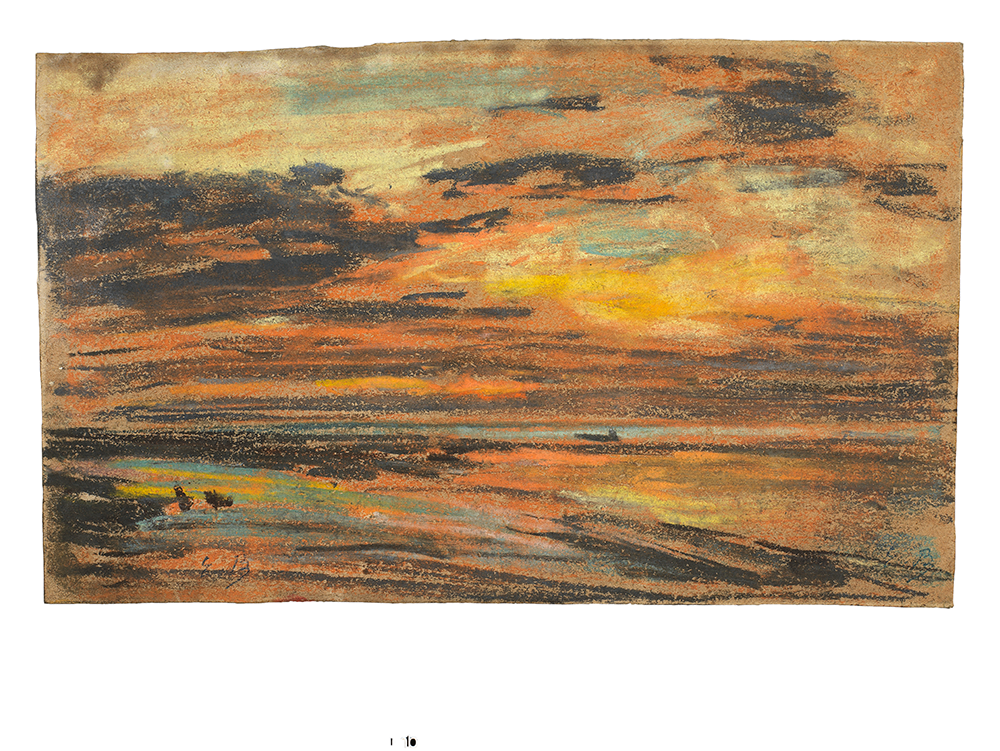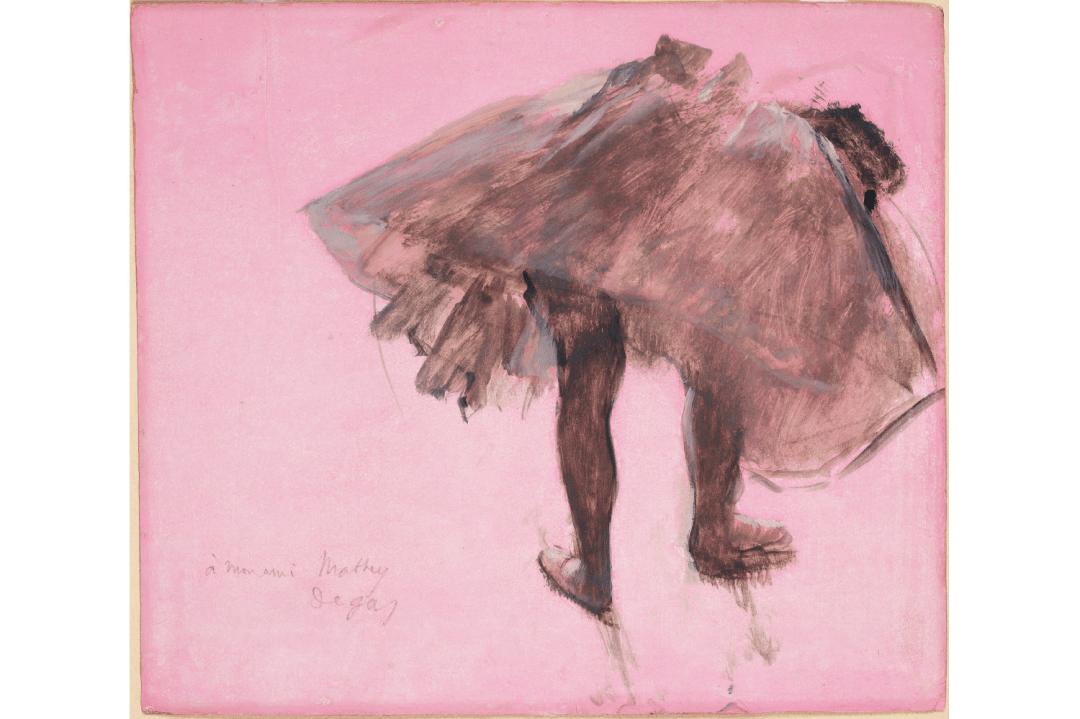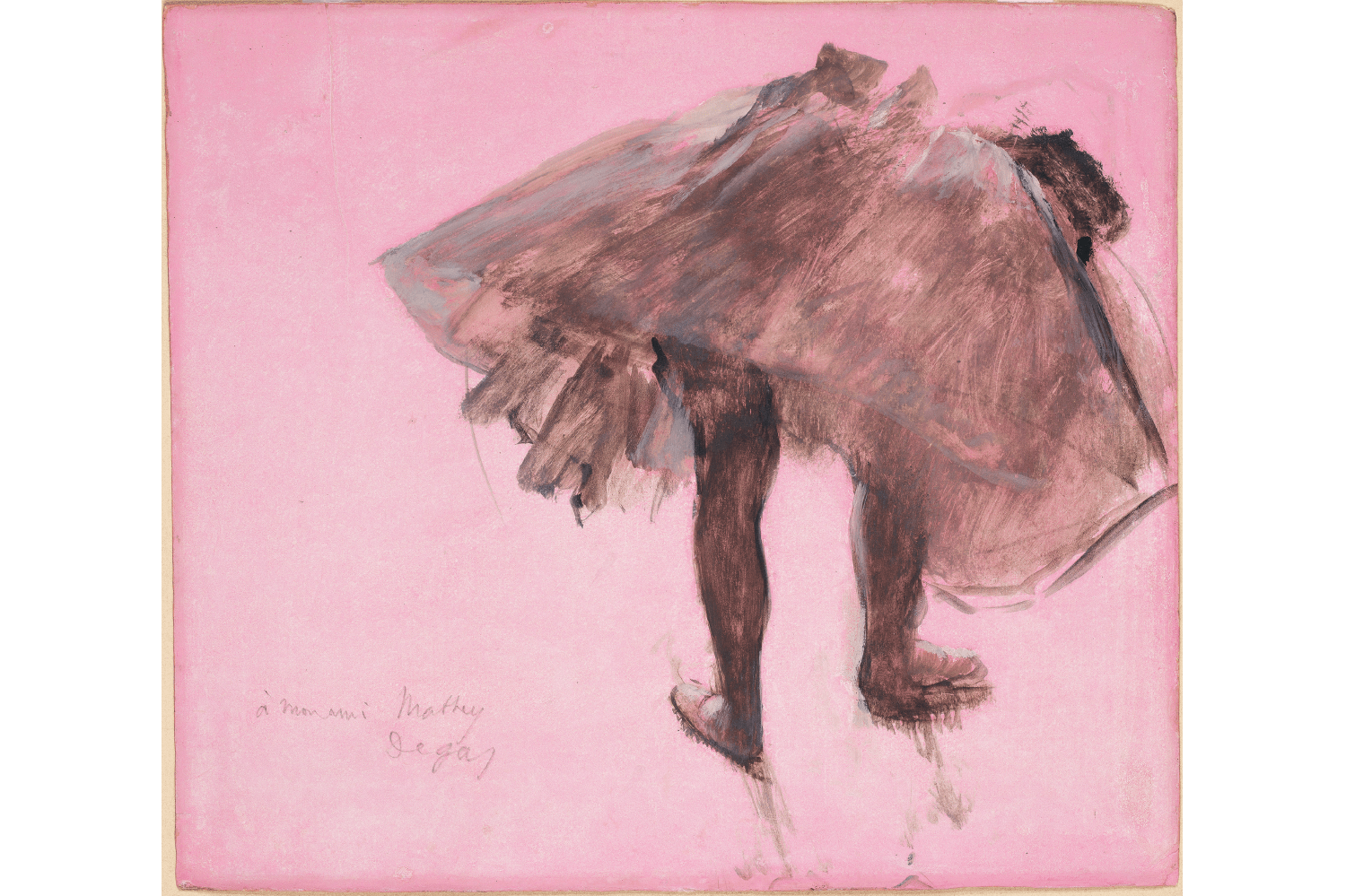Viewers have different relationships with small pictures, or perhaps it’s the other way round: small pictures have different relationships with them. A big picture clamours for attention; a small picture you have to lean in to hear.
No picture is more intimate than a drawing, and none brings you closer to the artist’s hand. A drawing can’t lie; it wears its facture on its sleeve. If you look closely, you can work out how it was made and even track the artist’s changes of direction. You can see, for instance, how Van Gogh launched into ‘The Fortifications of Paris with Houses’ (1887) in watercolour, then fortified the fortifications with gouache and chalk. A graphic artist by nature, he was at sea with watercolour washes. The thesis of this once-in-a-lifetime show of 77 drawings – 46 from private collections and more than half never shown before in London – is that modern drawing began with the impressionists. Before impressionism, there were preliminary sketches and presentation drawings; after, there were all shades in between.

At the Paris Salon, drawings were treated as minor works and relegated to separate sections, but the impressionists hung everything together. They set no value on ‘finish’ for its own sake: if you got the essence of the subject down, it was job done. Drawing needn’t be a fag; it could be fun. It could also be experimental. The drawing revolution coincided with a parallel revolution in art materials: the development of light and versatile modern drawing media enabling artists to capture the moment faster than was possible at the time with cumbersome cameras. Portability was of the essence. Trying to capture a moment on a large canvas is a faff. Monet had to recruit local urchins to lug his oil painting gear down the cliffs at Étretat, but the pastel drawing on show here of ‘Cliffs at Étretat: The Needle Rock and Porte D’Aval’ (c.1885)








Comments
Join the debate for just £1 a month
Be part of the conversation with other Spectator readers by getting your first three months for £3.
UNLOCK ACCESS Just £1 a monthAlready a subscriber? Log in